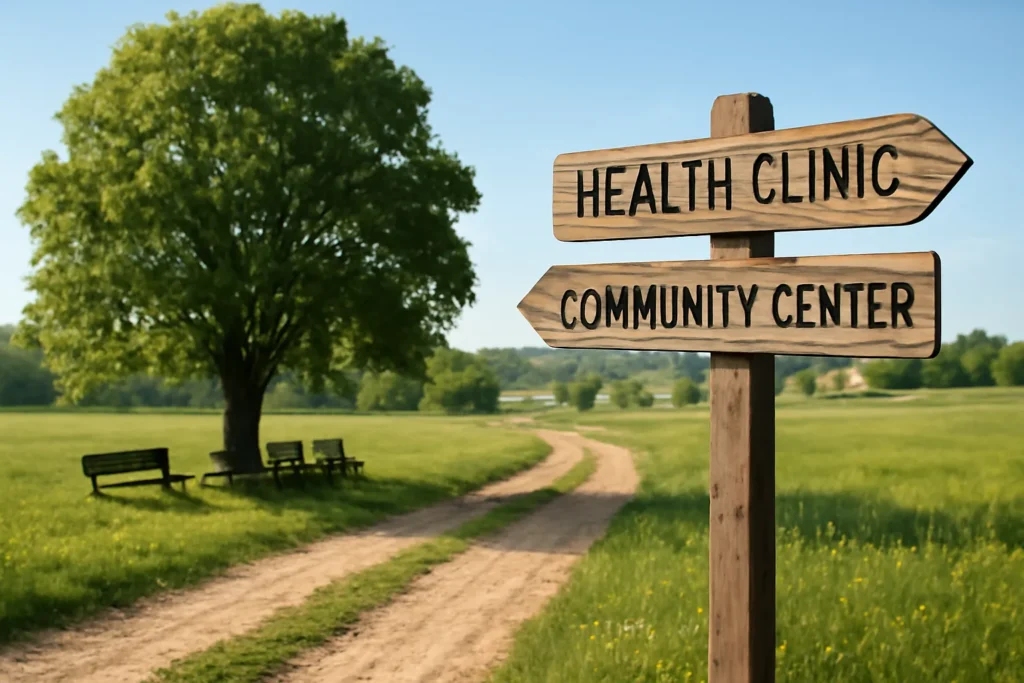The Unequal Geography of Health: Rural Arizona’s Stark Warning
Each year, families in rural Arizona greet their neighbors at funerals with increasing frequency. The unspoken question—why do so many die so young?—echoes in the halls of small-town hospitals and around kitchen tables across Cochise County. Data from the Arizona Department of Health Services bring the crisis into sharp relief: between 2019 and 2020, the age-adjusted mortality rate in Arizona jumped a staggering 25.8%, vaulting from 676.6 to 842.2 deaths per 100,000 residents. That year, Arizona held the ignominious title of the 23rd highest death rate in the United States.
A closer look reveals the roots of this crisis. Rural Arizona faces a devastating shortage of healthcare providers. Clinic doors close early for want of doctors; patients travel hours for basic check-ups or urgent care. The gap is not simply a lack of physicians—the consequences include higher rates of chronic illness, cancer, and untreated mental health conditions. Efforts to remedy these shortages include telehealth expansions, mobile medical units, and creative incentives like student loan forgiveness and subsidized housing for providers. While such programs help, the underlying problem persists: a health system buckling under the weight of geographic and economic disparity.
For the people left behind, practical realities define their tragedy. Without local specialists or emergency responders, time itself turns deadly—a delay in care becomes the difference between life and death. Community leaders warn that unless more substantial resources are allocated, rural Arizona could remain a bellwether for broader American neglect.
Economic Inequality: The Persistent Plague in U.S. Healthcare
Beyond the state borders of Arizona, deep fissures of economic inequality continue to undermine America’s aspiration to “life, liberty, and the pursuit of happiness.” The nation’s widening gap between rich and poor is now inscribed in our bodies as well as our bank accounts. According to a comprehensive report published in The Lancet, the life expectancy gap between the wealthiest and the most economically vulnerable Americans has stretched to an astonishing 10–15 years.
Why does this chasm persist in the world’s richest nation? Insurance coverage, once touted as the great equalizer with the advent of the Affordable Care Act (ACA), has become less of a safety net and more of a sieve. The reality for many middle- and low-income households: higher insurance premiums and out-of-pocket expenses have wiped out wage gains, leaving families perilously close to bankruptcy with every illness. Harvard economist David Cutler notes, “Health care costs have grown far faster than household incomes, placing enormous pressure on working families.” Employers may offer coverage, but the increasing deductibles and co-pays mean Americans delay or forgo care to avoid crushing bills.
“We talk about the American dream, but in rural America, health care is just that—a dream, and for far too many, an unattainable one.”
The ACA’s Medicaid expansion in some states led to real progress, lowering uninsured rates and improving outcomes for the most vulnerable. Yet, in states with restrictive policies or outright refusal to expand Medicaid, millions remain excluded. As political leaders spar over the bottom line, bodies continue to line up at overburdened ERs and at funerals in forgotten ZIP codes.
The Civil Rights Continuum: From Voting Marches to Health Justice
Connections between health activism and the historic struggle for civil rights run deep, especially across the South. One needs look no further than Montgomery, Alabama, where GirlTrek, a national health equity organization for Black women, recently anchored its newest office in the historic Bricklayers Hall. Once the strategic heart of the 1955-56 Montgomery Bus Boycott—and Dr. Martin Luther King Jr.’s office—this site now pulses with a new kind of organizing: a grassroots fight for accessible, dignified health care for Black women and families.
This isn’t just symbolism. The battle lines on access to health care are direct descendants of those drawn in the campaigns for voting rights and against segregation a lifetime ago. According to Dr. Camara Jones, former president of the American Public Health Association, “Health disparities are the most visible legacy of structural racism in this country, and they require the same moral urgency as battles for civil rights.” In states where Medicaid was born from the exhaustion and hope of the Civil Rights Movement, advocates now rally for further, deeper reforms. The fact that 60 years after Medicaid’s creation, racial and income-based health gaps persist is an indictment of our collective priorities.
Liberal policymakers and community groups argue for a bold renewal of the safety net: expanding Medicaid in every state, capping out-of-pocket costs, investing in rural health infrastructure, and addressing root causes like provider shortages and environmental injustice. Opponents, often spurred by austerity rhetoric and distrust of “big government,” deride such proposals as expensive overreach. Yet history provides the sharpest rebuke to this resistance—universal health care was once as radical an idea as integrated lunch counters. Today, denying care is a modern form of exclusion no less devastating than segregated schools or voter suppression.
What would it say about our democracy if we tolerate persistent disparities in who lives and who dies, simply because of a person’s ZIP code or income? Real progress requires not just piecemeal fixes, but a national reckoning with the moral dimensions of health justice—the unfinished work of America’s civil rights era.

